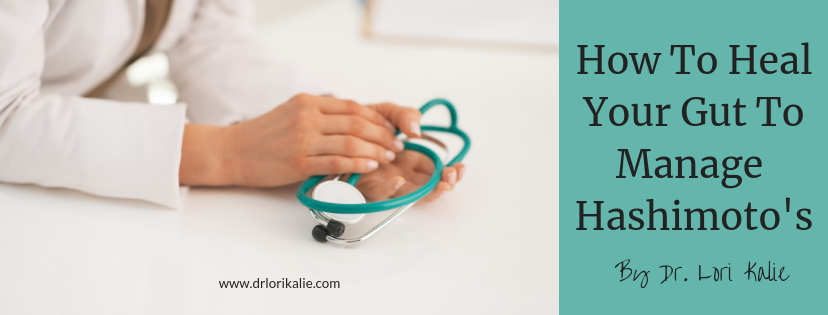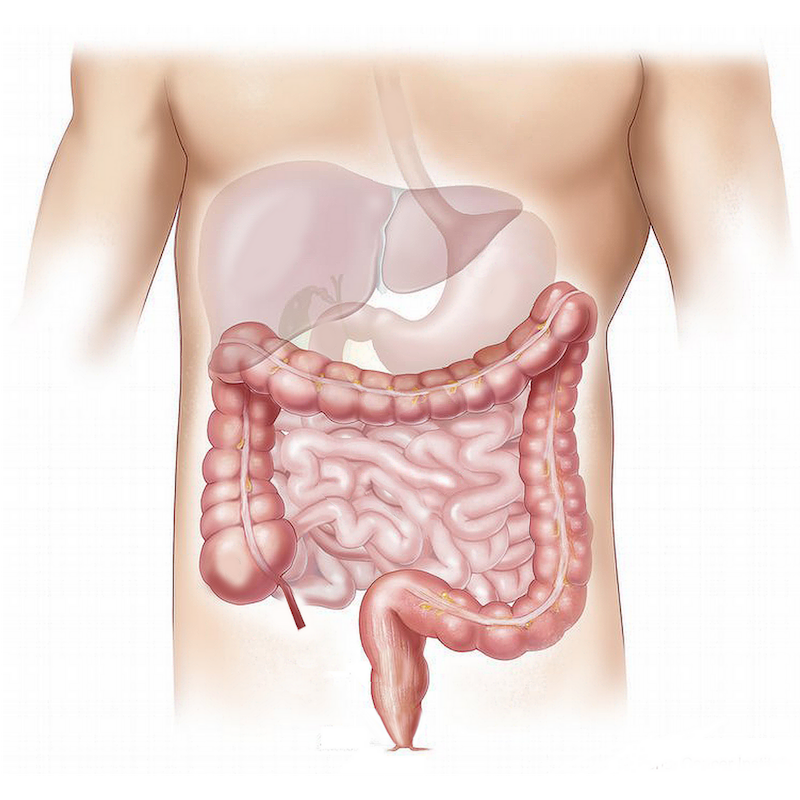The renowned Greek philosopher, Hippocrates, is well known for his belief that “all disease begins in the gut”. And we now know that a leaky gut is probably involved in many autoimmune conditions. This is why functional medicine has such a strong focus on healing the gut as one of the steps for treating autoimmune disease.
Ideally, you want to have a balance of good and bad bacteria in your gut but too often, it’s the bad bacteria that is more prolific. This imbalance can be a factor in many health conditions, including autoimmune disease like Hashimoto’s. Plus, good bacteria needs the intestinal lining to be healthy to avoid Leaky Gut Syndrome and its effects on autoimmune conditions. Here are some tips for healing your gut to reverse Leaky Gut Syndrome and manage symptoms of autoimmune conditions.
Step #1 – Removing Inflammatory Foods
The first big step to healing your gut involves getting rid of foods that are likely to cause inflammation or that may be allergens.
Unsprouted grains are one of these, especially ones with a lot of lectins. This includes grains that contain gluten, which are often a factor in encouraging a leaky gut. Grains can sometimes be reintroduced once your gut has started to heal.
Dairy can be another inflammatory food. It’s generally the protein A1 casein in cow’s milk that can be an issue. Many people who are trying to heal a leaky gut find that raw unpasteurized dairy can be okay as it is often easier to digest. It’s worth experimenting to see how you get on without dairy and if raw dairy is a viable alternative.
Sugar is another thing to avoid. It fuels the growth of candida, yeast and bad bacteria, all of which can make a leaky gut a lot worse.
Other potential culprits can include refined oils, Genetically Modified (GM) foods and foods with artificial additives.
Step #2 – Adding Gut Friendly Foods
As well as removing inflammatory foods from your diet, it also helps to add in some foods that will help your gut to heal.
A few that can support you with healing a leaky gut include:
- Bone broth can help to heal cell walls in the intestines.
- Raw cultured dairy products have probiotics and short chain fatty acids to promote gut healing.
- Fermented vegetables such as kimchi and sauerkraut.
- Coconut products contain medium chain fatty acids that are usually easier for the body to digest.
- Sprouted seeds such as chia, hemp and flax seeds, which contain fiber to support good gut bacteria.
- Healthy fats and omega 3 fatty acids encourage healing such as avocado, ghee and coconut oil.
- 1 to 2 servings of fruit per day, preferably consumed earlier on in the day.
Step #3 – Repairing Your Gut With Supplements
You can also repair your gut with supplements that support healing. Probiotics are the obvious choice for this but you may also be advised to try other supplements such as L-glutamine and adaptogenic herbs such as licorice root.
L-glutamine is the most common amino acid in the body and is super important for repairing the gut lining and reducing inflammation. It’s also likely to be depleted during periods of chronic stress so you may consider supplementing.

Glucosamine is more commonly associated with arthritis but according to research, it may be able to help other autoimmune conditions too, including Crohn’s Disease and ulcerative colitis, due to its role in supporting the stomach lining.
Quercetin is a flavonoid that can help to regulate histamine response, which is linked to leaky gut. When you’re stressed, mast cells in the gut are encouraged to release histamine but research has suggested that quercetin may be able to override this.
Digestive enzymes that are taken around meals can help to break down proteins, starches and sugars that could otherwise be undigested and pass through to the intestinal lining. g
Any form of stress can make a leaky gut more likely, which is why healing your gut has to involve taking steps to address stress. It also causes inflammation, which is a huge factor in autoimmune flare-ups. When cortisol is continuously being released, it can be super disruptive for your hormones, immunity, digestion and balance of bacteria – all of which can make autoimmune symptoms more severe.
A few of the things you can do to reduce the effects of stress include:
Prioritizing self care and using soul-centred self care as much as you can supports your gut to heal. It’s definitely not selfish to focus on self care when you’re living with autoimmune disease, and making time for it can be a game changer for reducing the severity of symptoms.
Being aware of how your body reacts when you’re under stress can be really beneficial and can help you to respond to it more quickly than you would otherwise. Deep breathing is a quick and simple way to tap into your parasympathetic nervous system and restore a greater sense of calm. Mindfulness can also work well for helping you to recognize your own personal stress response.
Download my FREE e-book, “Love Your Thyroid”. You will learn about foods and supplements that will nourish your thyroid and help to reverse your thyroid condition. Download here.
Join my free Facebook group “Improving Thyroid Health” for help with reversing thyroid conditions here.
Follow me on social media to get more health tips!
Find me on Facebook here.
I’m on Instagram everyday. I post many, many health tips and inspiration a couple of times a day here. Plus, I have fun on Insta Stories! Follow me here.My Pinterest boards have many great thyroid tips and healthy recipes. Follow me here.







